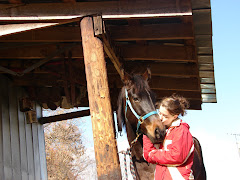Monday, March 24, 2008
hidden culture of power
I think schooling is important to everyone! No matter race, gender, economic status, or age; a student’s schooling should come first. I don’t think students today understand the seriousness of what schooling does for them. I like Delpit’s comment in the silenced dialogue “if schooling prepares people for jobs, and the kind of job a person has determines her and his economic status and, therefore, power, then schooling is intimately related to the power.” The power delpit speaks of is what, I believe, everyone is striving for in the long career run. It can be different for each person. The power can be the money one makes, the title they hold, the position they fulfill, or the home life they have because of their job. For each person the power is different. The power I hope to achieve after school is the power to have a home life I can be proud of because of my job. The power that school gives people comes in a “culture code” including linguistic forms, communication strategies, and presentation of self; that is way of talking, ways of writing, ways of dressing, and ways of interacting. All of these skills are tough in the classroom. In my classroom I hope I can make these codes clear for my students so that they are able to follow it through their schooling. Whether it is direct teaching go reading and writing or indirect role model type teaching presenting myself in a professional manner by the way I interact with everyone and my appearance.
Subscribe to:
Post Comments (Atom)



2 comments:
I agree with you- school is imporant. However, many students are going to disagree. They will not be able to see the power that school has to offer them, so one of our jobs is to help them see what they can gain through school. Some may never see how they will benefit from our state's curriculum, but we can use other tools and strategies to help them see the power of schooling
Delpit's challenge to us, then, is to think about the ways in which how and what we teach make certain perspectives and cultures more valuable within schools. Thus, if we want our students to engage with the important topics and skills we hope to teach them - to help them participate in the larger culture of power - then we need to think about the cultural perspectives of the curricular offerings we present to them. That is, not only must we think about convincing them that what we offer is valuable, we must also see our students as coming from cultures with value in our classrooms. The sharing of power, Delpit suggests, is bi-directional.
Post a Comment